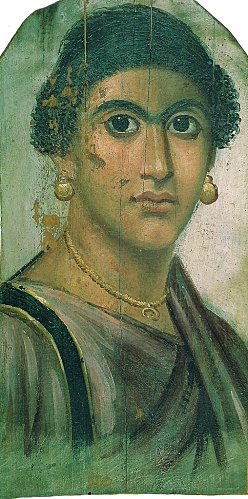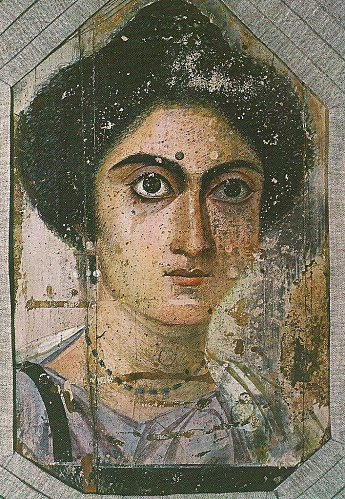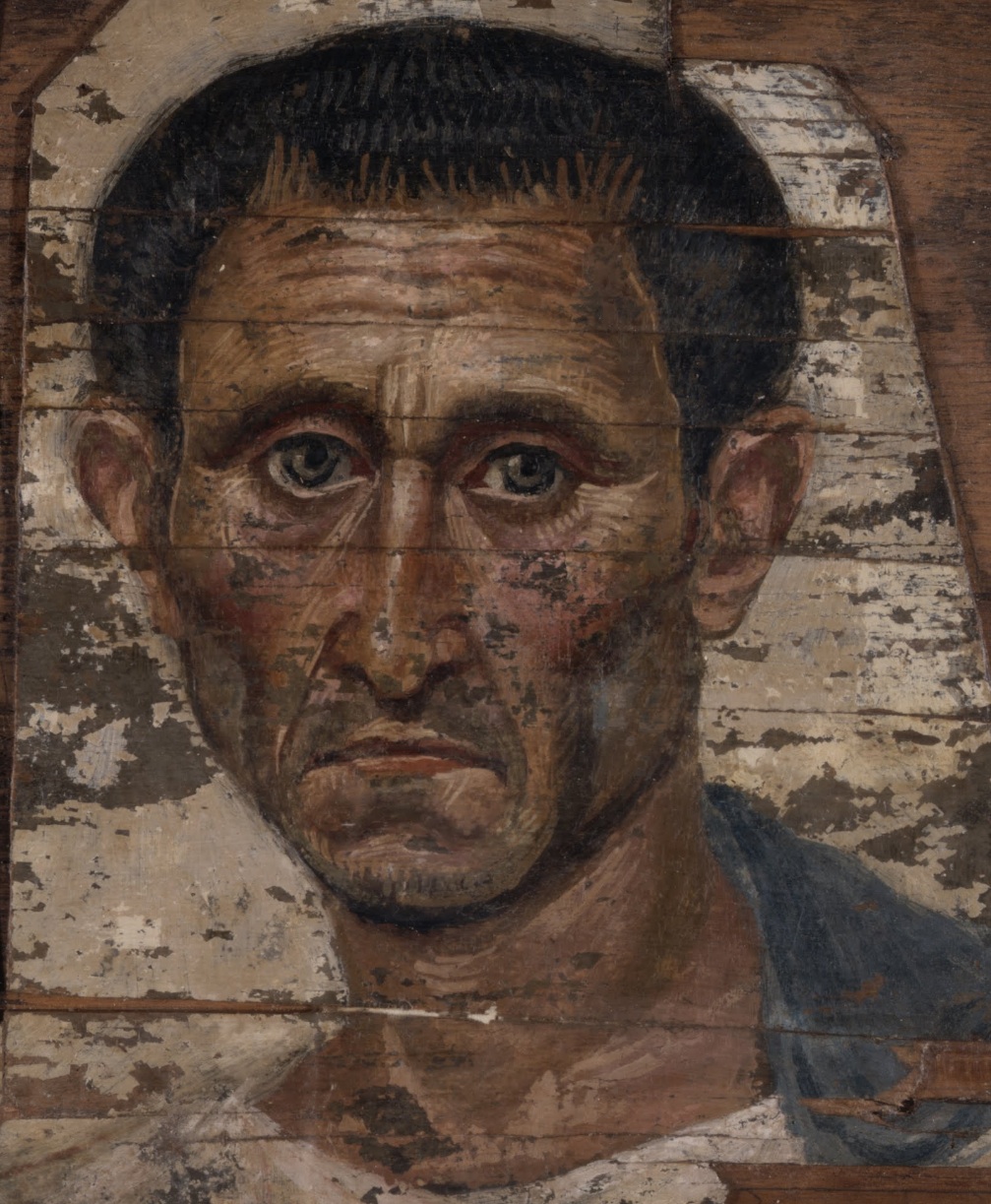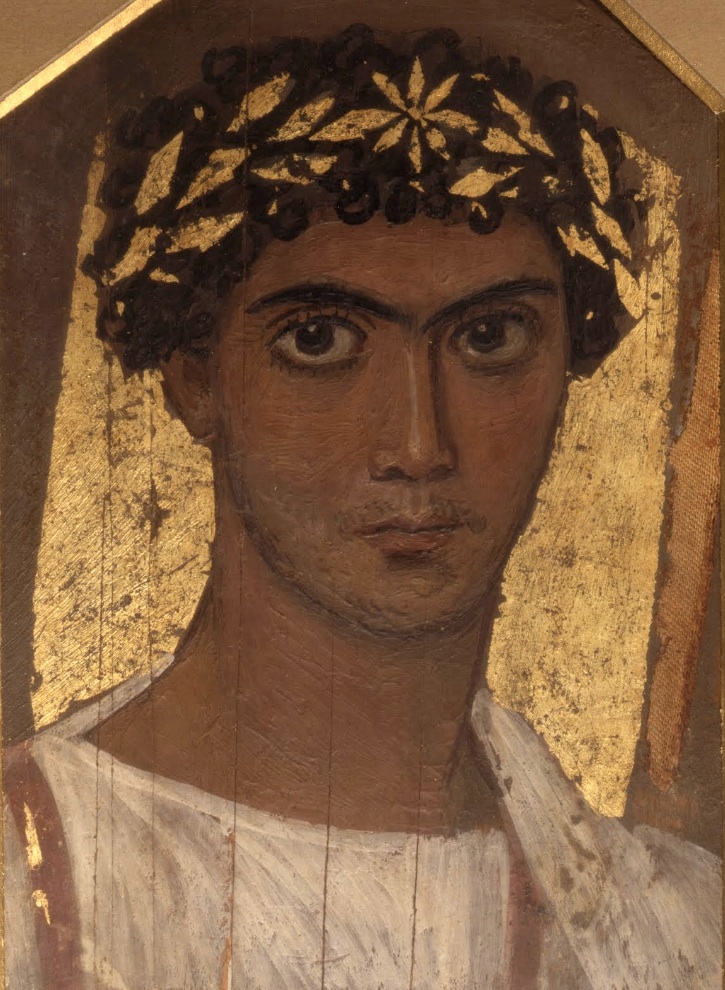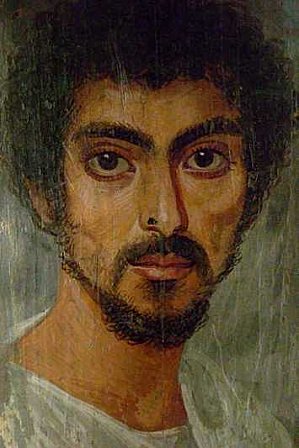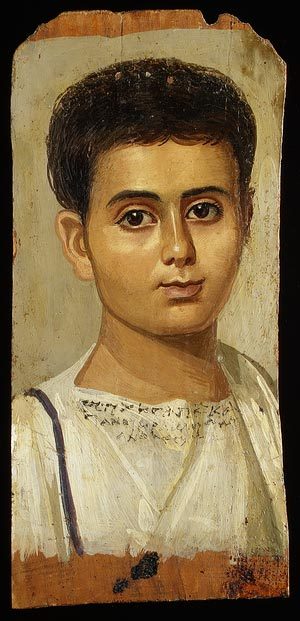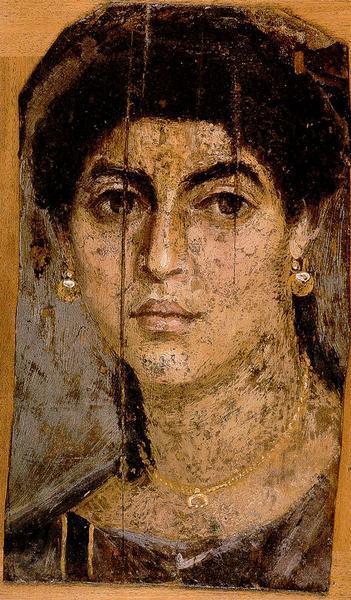
art COPTE: le Fayoum - portrait de jeune défunt
Les portraits du Fayoum sont une série de plus de 1000 portraits trouvés à partir de 1888 par Flinders Petrie, puis par d'autres archéologues, principalement dans le gouvernorat du Fayoum en Égypte. Ils datent des premiers siècles de notre ère (Ier au IVe siècles), et constituent des représentations visuelles des populations passant par cette région à cette époque.
Les portraits du Fayoum étaient peint du vivant du modèle. Placé en correspondance avec la tête du mort, ils étaient glissés dans l'appareil de bandelettes ou plus rarement posés à côté de la momie. Ils étaient réalisés généralement à l'encaustique, mais moins souvent à tempera sur une planchette de bois (tilleul importé, figuier, cèdre, ou sycomore). Le peintre utilisait de la peinture naturelle mélangée à chaud à de la cire d'abeille, avec de l'huile de lin ou de l'œuf. Le mélange ainsi obtenu était appliqué à de la toile de lin ou du bois. Les larges surfaces (fond et vêtements) étaient traîtées à la brosse, et le visage était achevé à la spatule.
Les portraits du Fayoum sont une série de plus de 1000 portraits trouvés à partir de 1888 par Flinders Petrie, puis par d'autres archéologues, principalement dans le gouvernorat du Fayoum en Égypte. Ils da ...
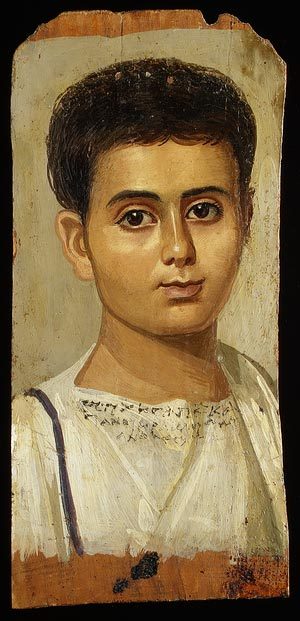

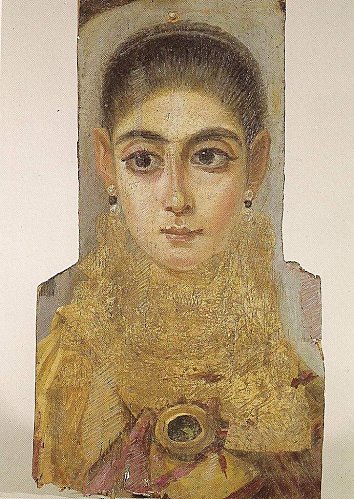
Details Unknown artist.jpg)
Details Unknown artist.jpg)

